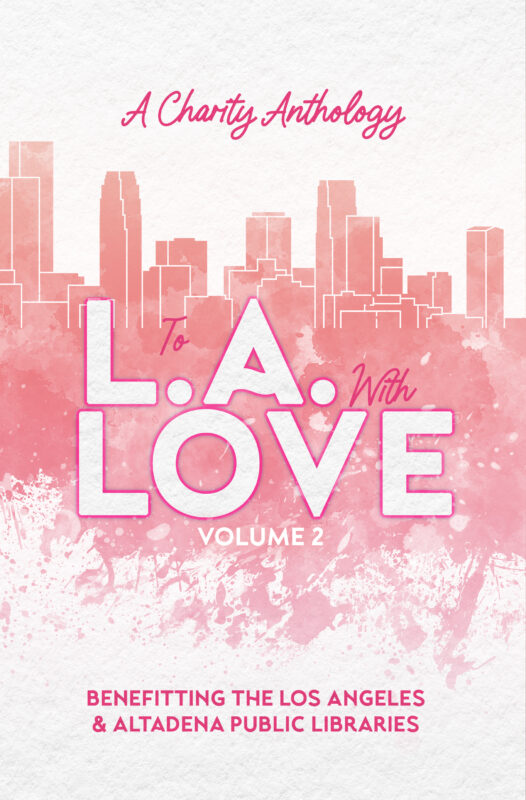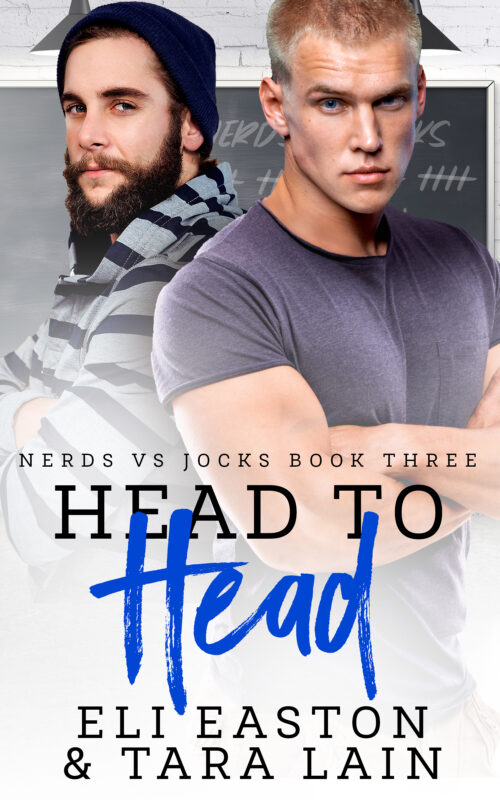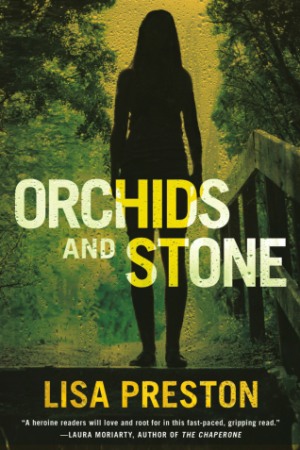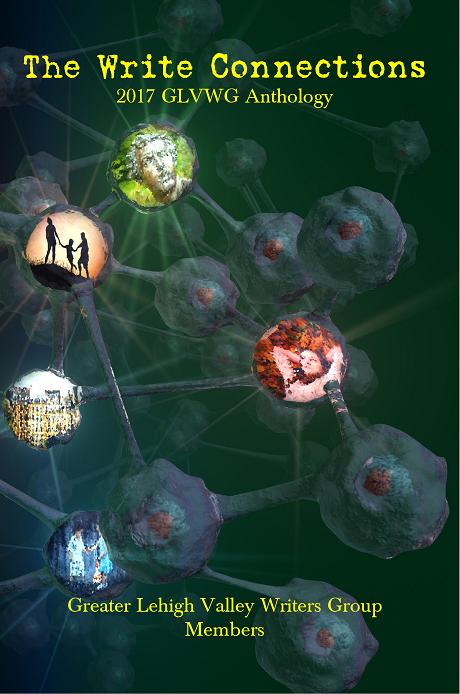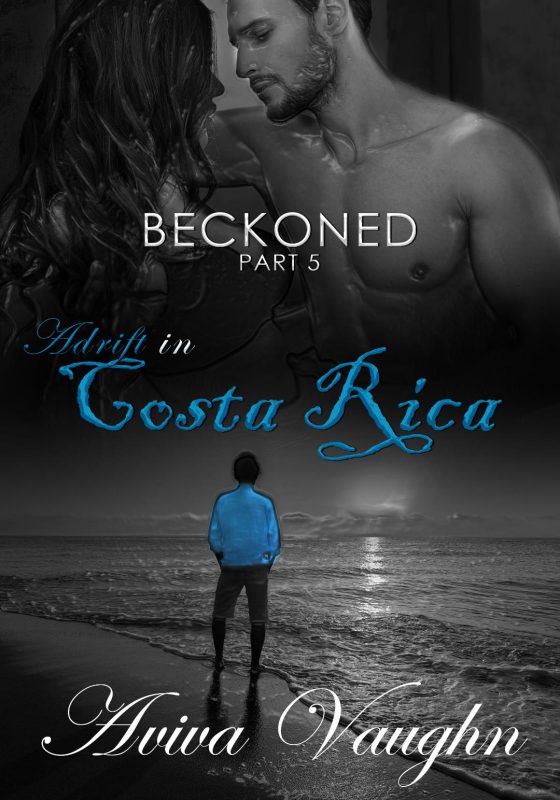Criticism: Big Girl Panties for Ruth by Jenny Jensen
February 19, 2021 by Jenny Jensen in category On writing . . . by Jenny Jensen tagged as constructive criticism, critiques, Editors, Jenny Jensen, writers
Or How to Take It on the Chin and Grow
(From our archives. We hope you enjoy this rerun from Jenny Jensen)
I attended an author’s chat the other day at our local library. It’s always fun to hear an author talk about their craft— especially if you like their books. The bonus is mingling with other attendees. Who among us doesn’t enjoy chatting with fellow book lovers? I found myself in conversation with two women, each funny, gracious and interesting. When talk got to the inevitable “so what do you do?” I learned Kit was a nurse and Ruth, a writer. I added that I’m an editor and while Kit smiled acknowledgment, Ruth scowled.
Ten minutes later—after Kit had smiled apologetically and bowed out—I’d learned all about Ruth’s experience with editors. “They call themselves editors, but they’re really just critics. They couldn’t even follow the story, let alone the subtext. They’re just mean, simple-minded wannabe writers” and so forth. Yowza! I’d never encountered that before. I know a lot of editors, and none of them fit that bill. Best to just nod and try to look sympathetic while keeping an eye peeled for a graceful escape. Ruth had either met the world’s worst editors, or she’s simply unable to handle criticism. I suspect the latter.
Writing is hard, solitary work. It’s just you creating in a vacuum. Writing requires hours of reading, writing and revising, searching for just the right words to make a character live and breathe, the perfect plot twist, the right feel. Writing writing writing, and then hours of revision. The whole blood, sweat and tears combo. Then there’s the criticism; every writer has to face it if they want to share their work outside that creative vacuum.
It can be a hard pill to swallow. I know. I’ve been singed by some very savvy, very critical edits. Hard to have your heart and soul — not to mention all that BS&T—picked to pieces by others. But like mammograms, taxes and dirty diapers, it has to be faced.
As an editor, I’m really loath to offer a ‘critique’. That word has such baggage. If words have color, then criticism is a red-tinged pulsating mash-up of bruised blue and black. I prefer to think of what I do as editorial assessment, or an overview. (Words really are powerful, aren’t they?!) But no matter how I spin it, it comes down to criticism.
Criticism is like cholesterol; there’s the good kind and the bad kind. The LDL kind, the bad kind, is empty criticism. “ I don’t like it”, “Flimsy and transparent” or “I don’t get it”. My favorite being, “yeah, I read it. Interesting”. Ouch! Then there is the polite, painless approach: “Very nice!” What could that possibly mean?
Constructive criticism is HDL cholesterol, good for every writer’s circulation. Good criticism points out pitfalls and weaknesses, but it also explains why they are pitfalls and weaknesses. It sheds light on why it doesn’t work. Really good, healthy criticism offers solutions. I never expect an author to accept a solution I offer (and most don’t, they find their own). I offer it as a straw man—something to consider, breakdown, reject and replace with a better approach because suggesting a substitute shows the author the problem needing a solution. It’s because a writer creates in isolation that they can’t always hear a misstep. I’m guessing Ruth’s missed subtext was so sub it wasn’t there. Point this out to a writer and the light bulb goes on; they revise, and the story is stronger.
How should you, as a writer, react to criticism? You wrote it, you shared it—you must learn to account for it. How do your words strike people? Did the reader see nothing where you intended a scene to be revealing or suggestive, and so the story is confusing? You can’t dismiss the reader as thick, dense or stupid. You have to look at your words and consider improvement because clearly, those words didn’t do the job you had intended. Whether it’s a missed plot point or character motivation that can’t be seen, maybe it isn’t on the page; it’s still in your head. Revise, rewrite. Listen to the audience your words are intended for. The best writers respect their readers. Your work will only get better.
A good editing critique helps you identify weaknesses. Don’t take it personally. Constructive criticism is useful precisely because it isn’t personal. Your BFF is unwilling to risk a response that might be hurtful, but is that what a writer needs?
Writing’s about kicking doubt in the ass and shoving him out the door. Editing’s about inviting him back in for tea and scrutiny. *
I wish Ruth had invited her editor back in.
*from @novelicious, that magical twitter feed that is double chocolate for every writer’s sweet tooth.
0 0 Read moreIn the Judgment Seat
May 13, 2020 by Bethlehem Writers Group in category From a Cabin in the Woods by Members of Bethlehem Writers Group tagged as constructive criticism, critiques, short story contest

From a Cabin in the Wood’s is a column featuring authors from the Bethlehem Writers Group. Writing for us this month is Dianna Sinovic.
Born and raised in the Midwest, Dianna Sinovic has also lived in three other quadrants of the U.S. She writes short stories and poetry, and is working on a full-length novel about a young woman in search of her long-lost brother.
In the Judgment Seat
The Bethlehem Writers Group, one of the writers groups I’m in, sponsors an annual short story contest for all non-members, and the members do much of the judging—the first cuts, the semifinalist round, and the finalists. Once the finalists are selected, a guest judge (an author outside the organization) makes the final call on the rankings of first, second, and third.
Each story is judged by three people, using a templated rubric, with the two highest scores determining whether the story makes it to the semifinalist category. Sometimes the same story can accrue widely divergent scores. How could three readers have such different reactions? That difference of opinion explains why sometimes the debates the group has on which stories come out on top are quite heated.
I’m often amazed at the creativity of some of the entrants, but also always disappointed in others. I think—if only the author had done X, Y or Z, the results would have been much more satisfying or made more sense.
It’s also instructive to see how often an entry lacks a story arc. Even if a story is short and basically just one scene, it still needs a beginning, middle and end, with a goal in mind for the main character. Author Juliet Marillier said that stories with no proper ending also don’t make the cut when she judges.
It’s also interesting to see that some authors submit pieces that are mostly likely memoir. This can work if the personal account contains the essence of a good story, with that needed arc and depth of character/emotion, but many often don’t.
How the theme is approached is also eye opening. We choose a new contest theme every other year. This year’s topic was animals; it didn’t matter what kind of animal or how many, but an animal had to play an important part in the story. I read tales that featured insects, cats, horses, dogs, sea animals, and reptiles, some good, some not so good. With research only a browser click away, I was discouraged at how often writers didn’t do their homework when trying to depict animal behavior.
Of course, it’s much easier for me to see the flaws in other people’s works than in mine.
Each year’s judging process serves as a reminder to always ask others to read my work and offer their feedback, to let me know where my stories fall short so I can further revise.
Sweet, Funny, and Strange Anthologies Featuring Stories From The Bethlehem Writers Group’s Short Story Award
Dear Extra Squeeze Team: How do I get critiques on my WIP but prevent plagiarism?
June 30, 2019 by The Extra Squeeze in category The Extra Squeeze by The Extra Squeeze Team tagged as copyrights, critiques, HO Charles, Jenny Jensen, Plagiarism, Publishing Questions, Rebecca Forster., Robkin Blakely, The Extra Squeeze, Writing Questions

Dear Extra Squeeze Team: How do I get critiques on my WIP but prevent plagiarism?

Rebecca Forster
USA Today Bestselling author of 35 books, including the Witness series and the new Finn O’Brien series.
In my 30+ year career, I have never worried about plagiarism. Most working authors don’t need to plagiarize your work, they have plenty of their own to worry about. New authors have their own ideas and probably will think they are on a better track with their own ideas. Keep your nose to the grindstone, listen to solid critiques and move forward.

Jenny Jensen
Developmental editor who has worked for twenty plus years with new and established authors of both fiction and non-fiction, traditional and indie.
Jenny is still on vacation time. She be back next month with The Extra Squeeze Team.
Robin Blakely
PR/Business Development coach for writers and artists; CEO, Creative Center of America; member, Forbes Coaches Council.
It is never wrong to take precautions with your work. My best suggestion for preventing plagiarism at the critique stage of the writing process is simple. Don’t share your work with people who have not been vetted in some way to earn your trust. If you doubt the integrity of the people that you are sharing your material with, their opinions about your writing should also be in question. If you have any qualms that your ideas could be stolen by the circle of people you willingly handed your work over to, then tighten your circle. Your work is your business. In any business, great ideas can be at risk of idea theft. Copyrights, trademarks, and non-disclosure agreements all exist to help enforce your rights. Look into those options. But realize that in the critique stage, prevention is a more powerful tool than policing the issue after it happens.
And, on the flip side, protect yourself. Accusations of idea theft or plagiarism is a two-way street. In a critique group, it is important to understand the parameters of collaboration. You may be asking other people to give you their opinions and contribute their ideas to your unfinished piece, but that also has limits that need to be established and clearly understood. It is possible that in a critique setting, your work may be the catalyst for a bigger and better idea than you imagined. If that bigger and better idea comes to light and is identified by someone, it is important to know how to properly handle that situation. It all starts with trusting who is at the table and taking the time to establish and understand the game rules before any of your work is read by anyone.
H.O. Charles
Cover designer and author of the fantasy series, The Fireblade Array
This genuinely is worth considering as ideas get stolen all the time (paranoid, me??). Sometimes plagiarism is not even committed consciously by the perpetrator. We absorb sentences and word structures and ideas all the time as we move through life, so it’s inevitable that we will reproduce bits and pieces of these when we get creative. If you’re sharing your work with a fellow creative, it should be accepted that you are going to influence them at least a little bit. If they churn out whole chunks of an original work or copy an entire plot without acknowledgement, it is quite different.
First, I’d advise using only people you trust to do your first run of read-throughs and critiques. If they’re your friends, they might not be as tough on your work, slightly biased etc., but it’s better than nothing at all. After that, there are copyright registration places if you live in the UK, but they are pointless in my opinion (we do not have a copyright office here – the US does). They won’t act for you legally if someone steals your work, and will take a small fee to register a copy of your work on the date you submit it. But if you have the raw, dated file stored on your computer, then you can just as easily prove you are the owner of the original work anyway. The law is different between the UK and USA, and elsewhere, so it is worth looking into copyright before you share your work with anyone.
A Writers Group? What’s in It for Me?
December 13, 2018 by Bethlehem Writers Group in category From a Cabin in the Woods by Members of Bethlehem Writers Group tagged as Bethlehem Writers Group, BWG, Carol L. Wright, critiques, Writing Groups

This month “From a Cabin in The Woods” author is Carol L. Wright.
Carol escaped a career in law and academia for one in writing. She is the author of the Gracie McIntyre Mystery series, the first of which, DEATH IN GLENVILLE FALLS, was a finalist for both the Killer Nashville Silver Falchion Award and a Next Generation Indie Book Award in 2018.
In addition to her mysteries, she is the author of short stories in several genres that have been published in a variety of literary journals and anthologies, including the award-winning Bethlehem Writers Group’s “Sweet, Funny, and Strange” anthologies in an assortment of themes.
Carol is a founding member of the Bethlehem Writers Group, a life member of Sisters in Crime and the Jane Austen Society of North America, and a member of Pennwriters and SinC Guppies. She is married to her college sweetheart, and lives in the Lehigh Valley of Pennsylvania with their rescue dog, Mr. Darcy,and a clowder of cats. You can learn more on Carol’s website,or by following her Facebook page.
A Writers Group?
What’s in It for Me?
Carol L. Wright
Are you a writer? If so, you already know that it can be a solitary life. Some of us need isolation and quiet to write, while others like the white noise and energy of a public place, such as a coffee shop, to hear their characters speak. Our friends and family members might think us eccentric—or worse—when we say we’re working but all they see is us staring off into nothingness.
So where does a writer find those rare understanding souls who can help them along their journey?
In a writers group, of course!
If you’ve never been part of a critique group, you might feel timid about sharing your work with a bunch of strangers, but it’s definitely worth the plunge. That’s what I did back in May of 2006 when I started what would become the Bethlehem Writers Group.
Over time, we developed an identity. While we had writers of all genres visit us, it soon became apparent that we had a critical mass of fiction and memoir writers—so that’s what we focus on.
We meet twice a month. At each meeting, members bring several hard copies of work to share, then listen as other members read the work aloud. After each reading is complete, we all share our thoughts. Sometimes, I’ll admit, we can be pretty blunt, but it’s meant kindly and constructively. I’ll never forget the first words of commentary on one of my pieces. “It’s DEATH, Carol! DEATH!” I realized then that I had more work to do.
One thing we are passionate about is helping each other become better writers. We remind each other of writing “rules” (e.g. use all five senses, start with a stronger hook, show don’t tell). But we also offer our personal perspectives on others’ work, letting them know where the reader runs into speed bumps slowing the flow of the story.
We’ve occasionally had writers join us who didn’t mesh well with our “sweet, funny, and strange” authors.
One left in a huff when we didn’t burst into applause at the first reading of their work. Another never returned after getting praise for their writing skill along with a suggestion that they not kill off the main character in chapter one. A third got up to leave saying the meeting was “out of control” when the discussion went off on a brief, humorous tangent. One came to her fourth or fifth meeting to yell at us, basically saying she would not join any writers group that would have her as a member. But those who have persevered, listening to our critiques, taking what was worthwhile and discarding what did not work for them, have grown as writers. From a group of mostly unpublished writers, we are now a group with every member published, some with several books to their credit.
So, what should you look for in a writers group?
I’d recommend looking for people:
- Who share your general writing interests. If you are interested in screen writing, it obviously won’t work well for you to join a poetry group. Some groups focus solely on one genre; others are open to several. Either is okay since many writing skills cross genres. As long as you understand your colleague’s perspective and they know what you’re trying to achieve, a fantasy writer can critique a YA romance and vice versa—and give writers ideas they never would have thought of without them.
- Who, while different from each other, are serious writers who respect each other enough to give their time and effort toward helping you become a better writer.
- Whom you respect enough to give your time and effort toward helping them become better writers and whose opinions you respect enough to listen to them.
- Who give everyone a chance to share their work.
- Who encourage you when things aren’t working out the way you’d like and celebrate your successes.
And what should you expect to offer a writers group?
- Contribute work for critiques. It helps your colleagues hone their own editorial skills to have good work to evaluate.
- Do your share. You’re not just there to get your work critiqued. You’re there to reciprocate.
- Treat others with the respect you’d like to receive.
- Be open to people of different ages, backgrounds, experience, and writing interests. You can learn a lot from people who do not share your perspective on the world, whether that be in writing or everyday life.
And what will you get out of it?
- You will become a better writer, and
- You will have some of the most interesting friends!

Part of the reason for the success of our writers group is that we have continually challenged each other. Our first project was to put out an anthology of Christmas stories in 2009. A CHRISTMAS SAMPLER: SWEET, FUNNY, AND STRANGE HOLIDAY TALES. We were from Bethlehem, after all. It won two NEXT GENERATION INDIE BOOK AWARDS—Best Anthology and Best Short Fiction. Not abad start. Since then, we’ve published several more on different themes, and are planning our next one now—FUR, FEATHERS, AND SCALES: SWEET, FUNNY, AND STRANGE ANIMAL TALES.
Along with our anthologies, since 2011 we have published an online literary journal: BETHLEHEM WRITERS ROUNDTABLE And since 2017, we’re a paying market for short stories and poems.
Perhaps most exciting for non-BWG members is that we hold an annual SHORT STORY AWARD. Our theme this year is animal stories, broadly interpreted. Our winners receive cash prizes as well as publication, with the First Place winner considered for inclusion in our next print anthology. Each year we invite a guest judge to do the final selection of our winners, and we’re so pleased that this year we have John Grogan, the best-selling author of MARLEY & ME. Find out more at here.
Our 2019 contest opens on January 1, so get your animal stories polished and ready to submit—perhaps with help from your writers group.We’d love to publish your winning work.
Books by Carol L. Wright
3 0 Read more
Criticism: Big Girl Panties for Ruth by Jenny Jensen
May 25, 2018 by Jenny Jensen in category On writing . . . by Jenny Jensen tagged as constructive criticism, critiques, Editors, Jenny Jensen, writers
Criticism: Big Girl Panties for Ruth
Or How to Take It on the Chin and Grow
I attended an author’s chat the other day at our local library. It’s always fun to hear an author talk about their craft— especially if you like their books. The bonus is mingling with other attendees. Who among us doesn’t enjoy chatting with fellow book lovers? I found myself in conversation with two women, each funny, gracious and interesting. When talk got to the inevitable “so what do you do?” I learned Kit was a nurse and Ruth, a writer. I added that I’m an editor and while Kit smiled acknowledgment, Ruth scowled.
Ten minutes later—after Kit had smiled apologetically and bowed out—I’d learned all about Ruth’s experience with editors. “They call themselves editors, but they’re really just critics. They couldn’t even follow the story, let alone the subtext. They’re just mean, simple-minded wannabe writers” and so forth. Yowza! I’d never encountered that before. I know a lot of editors, and none of them fit that bill. Best to just nod and try to look sympathetic while keeping an eye peeled for a graceful escape. Ruth had either met the world’s worst editors, or she’s simply unable to handle criticism. I suspect the latter.
Writing is hard, solitary work. It’s just you creating in a vacuum. Writing requires hours of reading, writing and revising, searching for just the right words to make a character live and breathe, the perfect plot twist, the right feel. Writing writing writing, and then hours of revision. The whole blood, sweat and tears combo. Then there’s the criticism; every writer has to face it if they want to share their work outside that creative vacuum.
It can be a hard pill to swallow. I know. I’ve been singed by some very savvy, very critical edits. Hard to have your heart and soul — not to mention all that BS&T—picked to pieces by others. But like mammograms, taxes and dirty diapers, it has to be faced.
As an editor, I’m really loath to offer a ‘critique’. That word has such baggage. If words have color, then criticism is a red-tinged pulsating mash-up of bruised blue and black. I prefer to think of what I do as editorial assessment, or an overview. (Words really are powerful, aren’t they?!) But no matter how I spin it, it comes down to criticism.
Criticism is like cholesterol; there’s the good kind and the bad kind. The LDL kind, the bad kind, is empty criticism. “ I don’t like it”, “Flimsy and transparent” or “I don’t get it”. My favorite being, “yeah, I read it. Interesting”. Ouch! Then there is the polite, painless approach: “Very nice!” What could that possibly mean?
Constructive criticism is HDL cholesterol, good for every writer’s circulation. Good criticism points out pitfalls and weaknesses, but it also explains why they are pitfalls and weaknesses. It sheds light on why it doesn’t work. Really good, healthy criticism offers solutions. I never expect an author to accept a solution I offer (and most don’t, they find their own). I offer it as a straw man—something to consider, breakdown, reject and replace with a better approach because suggesting a substitute shows the author the problem needing a solution. It’s because a writer creates in isolation that they can’t always hear a misstep. I’m guessing Ruth’s missed subtext was so sub it wasn’t there. Point this out to a writer and the light bulb goes on; they revise, and the story is stronger.
How should you, as a writer, react to criticism? You wrote it, you shared it—you must learn to account for it. How do your words strike people? Did the reader see nothing where you intended a scene to be revealing or suggestive, and so the story is confusing? You can’t dismiss the reader as thick, dense or stupid. You have to look at your words and consider improvement because clearly, those words didn’t do the job you had intended. Whether it’s a missed plot point or character motivation that can’t be seen, maybe it isn’t on the page; it’s still in your head. Revise, rewrite. Listen to the audience your words are intended for. The best writers respect their readers. Your work will only get better.
A good editing critique helps you identify weaknesses. Don’t take it personally. Constructive criticism is useful precisely because it isn’t personal. Your BFF is unwilling to risk a response that might be hurtful, but is that what a writer needs?
Writing’s about kicking doubt in the ass and shoving him out the door. Editing’s about inviting him back in for tea and scrutiny. *
I wish Ruth had invited her editor back in.
*from @novelicious, that magical twitter feed that is double chocolate for every writer’s sweet tooth.
0 0 Read moreAffiliate Links
A Slice of Orange is an affiliate with some of the booksellers listed on this website, including Barnes & Nobel, Books A Million, iBooks, Kobo, and Smashwords. This means A Slice of Orange may earn a small advertising fee from sales made through the links used on this website. There are reminders of these affiliate links on the pages for individual books.
Search A Slice of Orange
Find a Column
Archives
Featured Books
To L.A. With Love Volume 2
When wildfires damaged two beloved Los Angeles public libraries in January 2025, the romance community answered with heart.
More info →HEAD TO HEAD
If these two don't kill each other, they might fall in love.
More info →ORCHIDS AND STONE
They’re trying to take me. Help! Help me, please.
More info →BECKONED, PART 5: ADRIFT IN COSTA RICA
How do you heal a broken heart?
More info →Newsletter
Contributing Authors
Search A Slice of Orange
Find a Column
Archives
Authors in the Bookstore
- A. E. Decker
- A. J. Scudiere
- A.J. Sidransky
- A.M. Roark
- Abby Collette
- Alanna Lucus
- Albert Marrin
- Alice Duncan
- Alina K. Field
- Alison Green Myers
- Andi Lawrencovna
- Andrew C Raiford
- Angela Pryce
- Aviva Vaughn
- Barbara Ankrum
- Bethlehem Writers Group, LLC
- Carol L. Wright
- Celeste Barclay
- Christina Alexandra
- Christopher D. Ochs
- Claire Davon
- Claire Naden
- Courtnee Turner Hoyle
- Courtney Annicchiarico
- D. Lieber
- Daniel V. Meier Jr.
- Debra Dixon
- Debra H. Goldstein
- Debra Holland
- Dee Ann Palmer
- Denise M. Colby
- Diane Benefiel
- Diane Sismour
- Dianna Sinovic
- DT Krippene
- E.B. Dawson
- Emilie Dallaire
- Emily Brightwell
- Emily PW Murphy
- Fae Rowen
- Faith L. Justice
- Frances Amati
- Geralyn Corcillo
- Glynnis Campbell
- Greg Jolley
- H. O. Charles
- Jaclyn Roché
- Jacqueline Diamond
- Janet Lynn and Will Zeilinger
- Jaya Mehta
- Jeannine Atkins
- Jeff Baird
- Jenna Barwin
- Jenne Kern
- Jennifer D. Bokal
- Jennifer Lyon
- Jerome W. McFadden
- Jill Piscitello
- Jina Bacarr
- Jo A. Hiestand
- Jodi Bogert
- Jolina Petersheim
- Jonathan Maberry
- Joy Allyson
- Judy Duarte
- Justin Murphy
- Justine Davis
- Kat Martin
- Kidd Wadsworth
- Kitty Bucholtz
- Kristy Tate
- Larry Deibert
- Larry Hamilton
- Laura Drake
- Laurie Stevens
- Leslie Knowles
- Li-Ying Lundquist
- Linda Carroll-Bradd
- Linda Lappin
- Linda McLaughlin
- Linda O. Johnston
- Lisa Preston
- Lolo Paige
- Loran Holt
- Lynette M. Burrows
- Lyssa Kay Adams
- Madeline Ash
- Margarita Engle
- Marguerite Quantaine
- Marianne H. Donley
- Mary Castillo
- Maureen Klovers
- Megan Haskell
- Melanie Waterbury
- Melisa Rivero
- Melissa Chambers
- Melodie Winawer
- Meriam Wilhelm
- Mikel J. Wilson
- Mindy Neff
- Monica McCabe
- Nancy Brashear
- Neetu Malik
- Nikki Prince
- Once Upon Anthologies
- Paula Gail Benson
- Penny Reid
- Peter J Barbour
- Priscilla Oliveras
- R. H. Kohno
- Rachel Hailey
- Ralph Hieb
- Ramcy Diek
- Ransom Stephens
- Rebecca Forster
- Renae Wrich
- Roxy Matthews
- Ryder Hunte Clancy
- Sally Paradysz
- Sheila Colón-Bagley
- Simone de Muñoz
- Sophie Barnes
- Susan Kaye Quinn
- Susan Lynn Meyer
- Susan Squires
- T. D. Fox
- Tara C. Allred
- Tara Lain
- Tari Lynn Jewett
- Terri Osburn
- Tracy Reed
- Vera Jane Cook
- Vicki Crum
- Writing Something Romantic
Affiliate Links
A Slice of Orange is an affiliate with some of the booksellers listed on this website, including Barnes & Nobel, Books A Million, iBooks, Kobo, and Smashwords. This means A Slice of Orange may earn a small advertising fee from sales made through the links used on this website. There are reminders of these affiliate links on the pages for individual books.


























